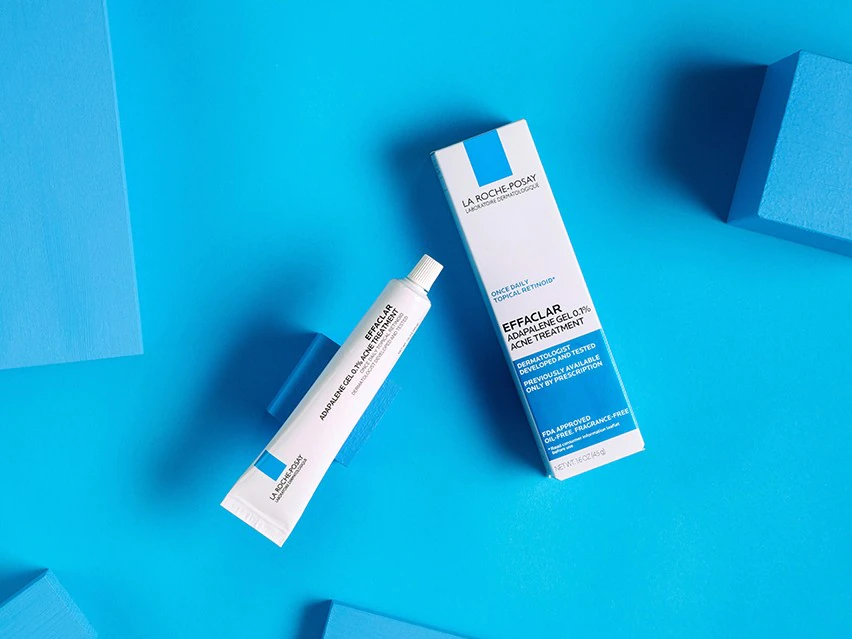No products in the cart.
Skin Care Diary: Should You Use Retinol?
You’ve probably heard about them on social media, seen them in magazines and advertisements, or even incorporated them into your routine. Retinols have long been regarded as a “familiar ingredient” in daily skincare regimens. This skincare warrior has even made its mark with 29,000 monthly searches. However, not every girl or guy fully understands how they work, leading to misconceptions.

Summary: What is retinol, and is it suitable for you? If you can’t use retinol, what should you use instead? So, what’s the difference between Retin-A and Retinoids? Retinol serums Gels and creams Other options In essence, is retinol an exfoliant or an antioxidant? How do they work? Are they being overly glorified? These are questions this article will strive to answer.
What is retinol, and is it suitable for you? Essentially, retinol is a derivative of Vitamin A, used for anti-aging and present in many skincare products. Although many believe retinol is an exfoliant, it’s actually an antioxidant.
This ingredient works by accelerating cell turnover, improving skin tone and texture, boosting collagen production, and regulating oil production. However, it’s not recommended for use by pregnant individuals or those with eczema or rosacea. Therefore, understanding your current skin condition is crucial when selecting suitable products.
When using retinoids, it’s like running a marathon on your skin rather than sprinting. So, start gently and slowly, using a small amount, twice a week to avoid irritation. Remember, retinol is best used at night and before moisturizing as sunlight can deactivate it.
Moreover, you shouldn’t combine retinol with all types of toners, including Vitamin C, to prevent irritation. But don’t worry, once your skin becomes more accustomed to retinol, you can reintroduce them into your daily routine.
What if you can’t use retinol? What should you use instead? Although there are many things to avoid when incorporating this ingredient into your skincare routine, it doesn’t mean they’re entirely negative and should be eliminated. Retinol requires a TLC (Thin Layer Chromatography) approach.
They’re skincare saviors for combating acne, wrinkles, and unwanted textures but can also cause dryness, flakiness, or even redness. Therefore, moisturizing is essential. You can combine it with niacinamide, hydrating facial gels, or nutrient-rich masks and serums.
However, for other ingredients like Vitamin C, AHA, and BHA, you don’t need to completely avoid them when using retinol, but timing is crucial. Simply separate them clearly, for example, Vitamin C in the morning and retinol at night. Or if you’ve just used a chemical exfoliant, temporarily stop using retinol. And especially, always remember to apply sunscreen daily when using retinol.
If you’re living in a cold and dry climate, mixing retinol with niacinamide is an excellent way to create a moisturizing barrier. This reduces steps in your skincare routine without damaging the skin barrier and counteracting dryness caused by retinol.
So, what’s the difference between Retin-A and Retinoids? Retin-A, also known as Tretinoin, and retinol both fall under the “Retinoids” category and can help accelerate skin cell turnover, but Retinol doesn’t require a prescription, whereas Retin-A does and is slightly more effective in reducing wrinkles and treating acne.
Products containing retinol you can consider:
Retinol serums Retinol Night Serum | Buy Retinol Serum In Pakistan | Vince Care
A serum that can make your skin look younger and more radiant is one that contains Retinol. This powerful ingredient is sure to impress. Start with products with low percentage concentrations, such as Glossier’s Universal Pro-Retinol or Eve Lom’s Radiance Repair Retinol – this serum product also includes AHA to provide nutrients and is considered a must-have for glass skin enthusiasts.
Gels and creams La Roche-Posay Effaclar Adapalene Gel 0.1% Retinoid Acne Treatment | LovelySkin La Roche-Posay Effaclar Adapalene Gel 0.1% Retinoid Acne Treatment A slower approach involves using topical creams. This list includes La Roche-Posay Effaclar Adapalene Gel 0.1% Retinoid Acne Treatment and Avene’s Hyaluron Activ B3 Night Cream. However, if your cream or gel lacks moisturizing ingredients, prepare to use an additional moisturizing cream as retinol can make the skin very dry.
Other options If you still feel that your skin is too sensitive to combine with traditional retinol, plant-derived alternatives like Bakuchiol are an excellent substitute due to their anti-aging properties. Bakuchiol, an extract from the Babchi plant, is one of the few substances that can replace retinol and has been scientifically proven. Brands like Tatcha have also released products including such alternatives to minimize retinol’s side effects like irritation or discomfort.
